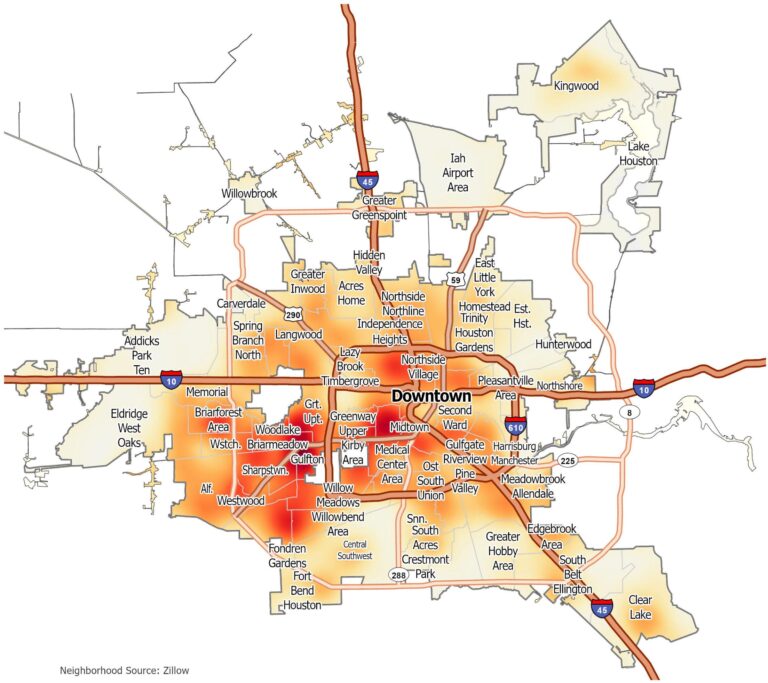Houston Residents Modify Nighttime Activities in Response to Safety Concerns
Recent surveys indicate a notable change in how Houstonians approach their evenings, with a majority opting to stay indoors after dark due to increasing apprehensions about crime. According to a report by the Houston Chronicle, more than 60% of participants have consciously reduced their outdoor presence during nighttime hours, prioritizing personal safety over social engagements. This behavioral adjustment highlights the community’s growing unease and the balancing act between maintaining normalcy and mitigating risk.
Businesses and event organizers across Houston have observed a downturn in nighttime patronage, prompting many to innovate by extending delivery services and bolstering security protocols to retain customers. Key lifestyle changes among residents include:
- Lower turnout at evening entertainment spots and public gatherings
- Increased investment in residential security technology
- Shift towards digital socializing platforms
- Preference for conducting errands and activities during daylight
| Behavioral Change | Percentage Shift |
|---|---|
| Nighttime outings | Decreased by 45% |
| Ride-share usage after dark | Reduced by 30% |
| Installation of home security systems | Increased by 20% |
| Engagement in online social activities | Grew by 35% |
Grassroots Initiatives and Community Demands for Safer Neighborhoods
Heightened concerns about crime have led many Houston residents to reconsider their evening habits, with a significant number expressing fear about walking alone after dark. This widespread anxiety is fueling calls for more comprehensive safety measures. Community leaders and local officials are responding by advocating for improvements such as better street illumination, increased police visibility, and the establishment of neighborhood watch groups.
Primary focus areas include:
- Strengthening collaboration between law enforcement and community members
- Deploying surveillance cameras in high-risk zones
- Hosting educational workshops to raise public safety awareness
- Addressing underlying issues like economic inequality and youth outreach
| Safety Concern | Percentage of Residents Concerned |
|---|---|
| Apprehension about walking alone at night | 68% |
| Need for enhanced street lighting | 54% |
| Support for increased police patrols | 63% |
| Interest in neighborhood watch participation | 47% |
Expert Recommendations: Boosting Nighttime Safety Through Lighting and Policing
Security specialists emphasize that enhancing public lighting is a vital deterrent against nocturnal criminal acts. Well-lit streets and parks not only improve visibility but also increase residents’ confidence to engage in community life after dark. Research indicates that strategic illumination can reduce crime rates by limiting concealment opportunities for offenders and promoting natural surveillance.
Complementing improved lighting, experts advocate for a more visible and proactive police presence. Regular patrols in vulnerable neighborhoods act as a deterrent and enable swift responses to incidents. Recommended strategies include:
- Focused patrols targeting crime-prone areas
- Community policing initiatives fostering trust
- Partnerships with local organizations to promote safety education
| Intervention | Projected Outcome | Potential Obstacles |
|---|---|---|
| Upgraded Street Lighting | Up to 30% decrease in nighttime offenses | High initial installation costs |
| Expanded Police Patrols | Quicker response to emergencies | Limited availability of officers |
| Community Engagement Programs | Enhanced cooperation and trust | Requires ongoing community involvement |
Encouraging Resident Participation in Watch Programs and Safety Training
In light of growing safety concerns, city officials are actively promoting neighborhood watch initiatives to empower residents as vigilant guardians of their communities. These programs rely on regular patrols, training workshops, and community meetings to foster a culture of shared responsibility. Officials stress that collective action is essential for creating safer environments and reducing crime at the grassroots level.
Additionally, a series of complimentary safety workshops are being offered throughout Houston’s districts. These sessions cover topics such as personal defense techniques, home security improvements, and effective communication with law enforcement. Designed for all age groups, these interactive workshops aim to build a resilient network capable of deterring and responding to criminal activity efficiently.
- Heightened community awareness and solidarity
- Improved real-time information exchange with police
- Reduction in minor crimes and property damage
- Strengthened personal and household safety practices
| Program | Frequency | Venue |
|---|---|---|
| Neighborhood Watch Meetings | Monthly | Community Centers Across Houston |
| Personal Safety Workshops | Biweekly | City Hall and Public Libraries |
| Home Security Training Sessions | Quarterly | Local Police Stations |
Conclusion: Houston Residents Prioritize Safety as Crime Concerns Rise
As more Houstonians choose to remain indoors after sunset, the latest polling data reflects a community increasingly vigilant about crime. This behavioral shift not only signals heightened public awareness but also presents challenges and opportunities for local businesses and social engagement. Authorities continue to encourage residents to stay alert and collaborate closely with law enforcement to foster safer neighborhoods throughout Houston.




